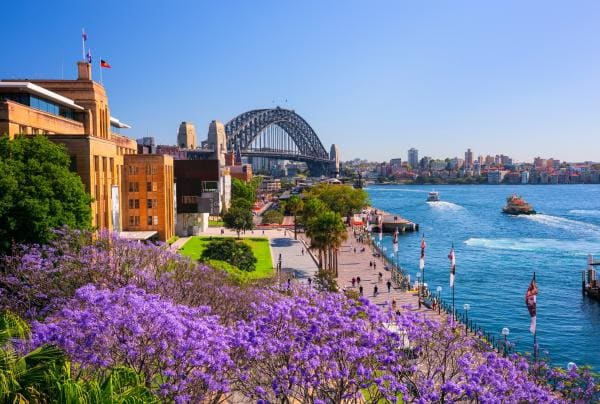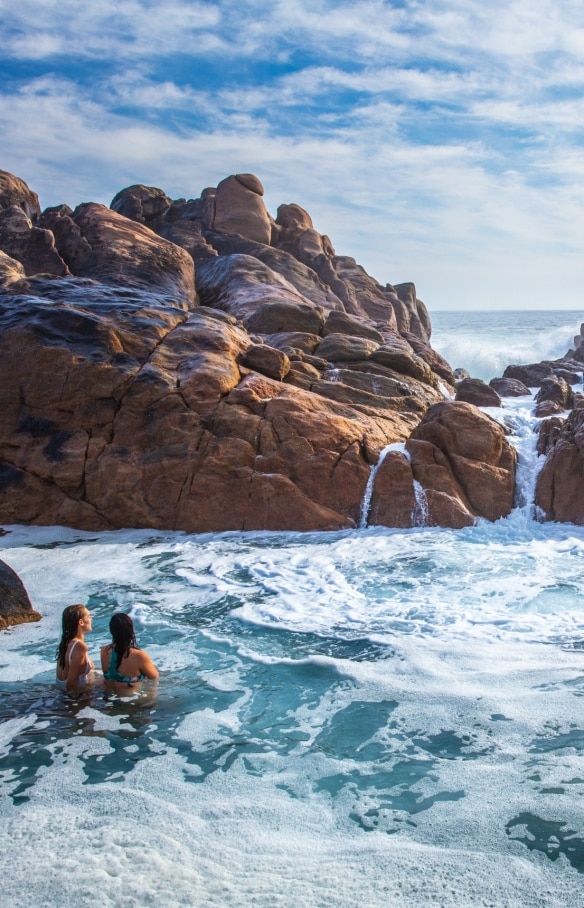Sydney’s International Airport is serviced by many international airlines, making it an easy gateway to arrive in the country from overseas. Flights arrive from many cities in Asia, the Middle East, North America, South America, and the Pacific.

How to get to Australia’s most iconic cities & destinations
Australia is an expansive country with plenty of iconic destinations to visit. Getting to each of them can seem intimidating, but it’s easier than you might think.
By Ashlea Wheeler
Optimise your time in Australia with information on how to easily reach the unforgettable landmarks and attractions on every traveller's bucket list.
Getting to Sydney

Jacarandas, Sydney Harbour, Sydney, New South Wales © Destination NSW
Getting to Canberra

Canberra Balloon Spectacular, Canberra, Australian Capital Territory © Matt Evans Images
Getting to Melbourne

Centre Place, Melbourne, Victoria © Robert Blackburn
Getting to Tasmania

MACq 01, Hobart, Tasmania © Adam Gibson
Getting to Adelaide

Glenelg Beach, Adelaide, South Australia © South Australian Tourism Commission
Getting to Perth

Elizabeth Quay, Perth, Western Australia © Tourism Western Australia
Getting to Darwin

Mindil Beach, Darwin, Northern Territory © Tourism NT/Jules Ingall
Getting to Brisbane

Riverlife, Brisbane River, Brisbane, Queensland © Tourism and Events Queensland
Getting to the Great Barrier Reef

Sea Turtle, Great Barrier Reef, Queensland © www.oakbeachproductions.com.au
Getting to the Red Centre

Uluru, Red Centre, Northern Territory © Tourism Australia
Getting to the Great Ocean Road

12 Apostles, Great Ocean Road, Victoria © Roberto Seba






























































































































